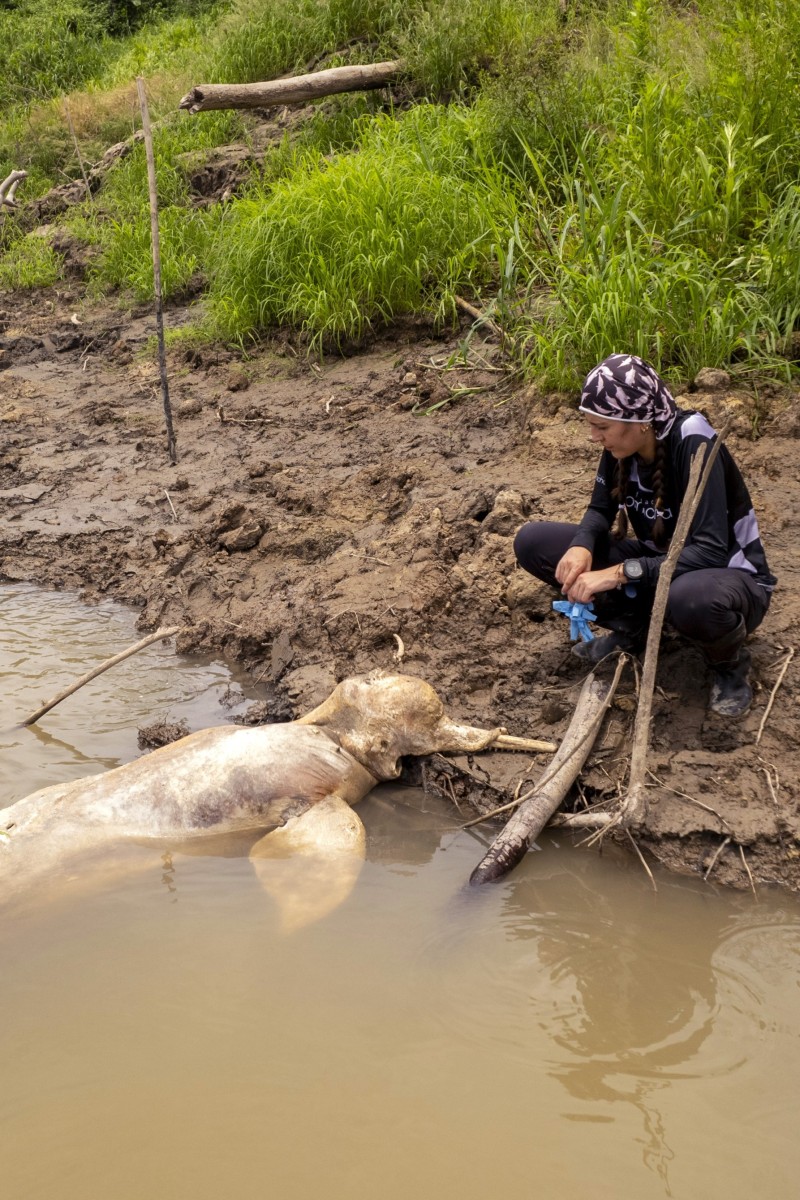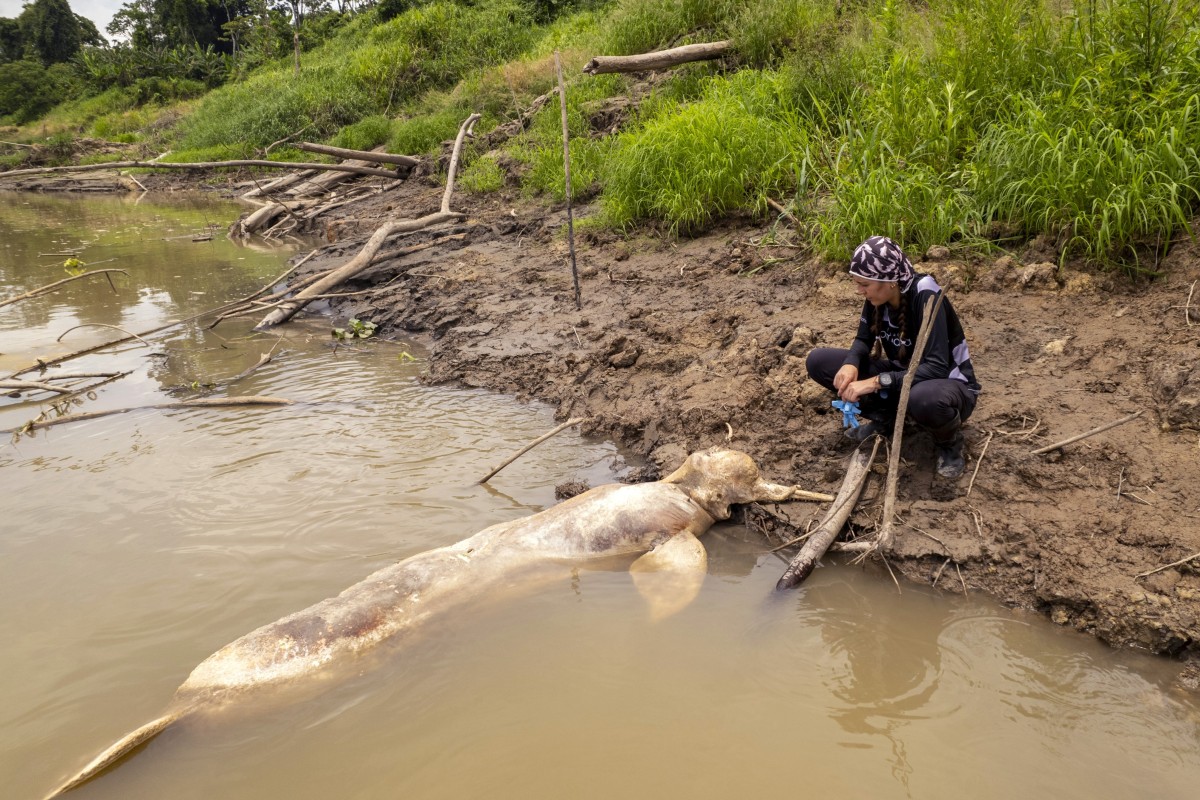
Nine nations from Asia, South America join hands to prevent river dolphin extinction
- Countries aim to improve water quality in the animals’ habitat, create protected areas and tackle overfishing
- WWF says global population of freshwater dolphins has declined by 73% since the 1980s
 Nine countries from Asia and South America have signed a declaration to prevent the extinction of river dolphins. Photo: EPA-EFE
Nine countries from Asia and South America have signed a declaration to prevent the extinction of river dolphins. Photo: EPA-EFEA joint declaration has been signed between nine nations from Asia and South America to save river dolphins from extinction.
The document was signed in the Colombian capital of Bogotá between Bangladesh, Bolivia, Brazil, Cambodia, Colombia, Ecuador, India, Nepal and Venezuela.
Pakistan and Peru also joined the declaration, but did not want to officially sign the document until the coming weeks.
The countries involved agreed to improve water quality in the dolphins’ habitat, create protected areas, tackle overfishing and involve indigenous communities in the affected regions in protecting the animals.
“This historic declaration creates a road map for the recovery of river dolphin populations across the globe – offering real hope for the survival of these iconic species despite the enormous threats they face,” said Stuart Orr of the conservation organisation World Wide Fund for Nature (WWF).
“But this declaration is about more than saving river dolphins: it’s also about enhancing the health of their great rivers, which are the lifeblood of so many communities and economies as well as sustaining critical ecosystems from rainforests to deltas.” The global population of freshwater dolphins has declined by 73 per cent since the 1980s, due to pollution and fishing, according to WWF.
Your Voice: Why we should cherish Hong Kong marine life (letters)
Currently, six different species still live in rivers such as the Amazon and the Orinoco in South America or the Ganges and the Mekong in Asia.
Recently, more than 150 dolphins died in the Brazilian Amazon, according to the WWF. Scientists assumed that heat and drought could have triggered the mass die-off.